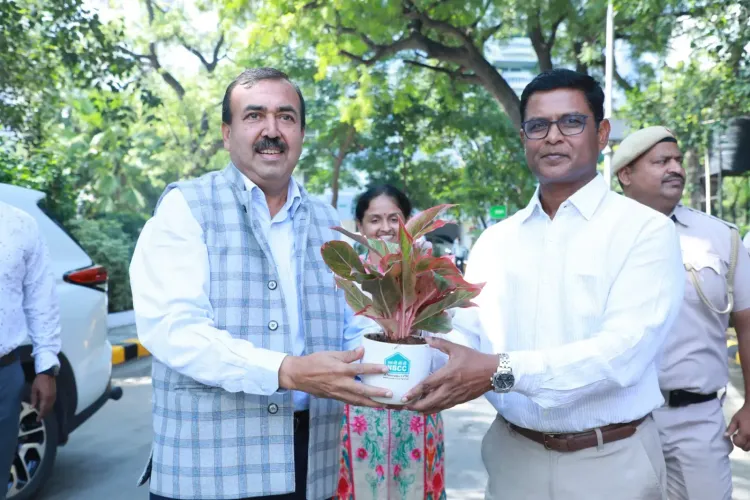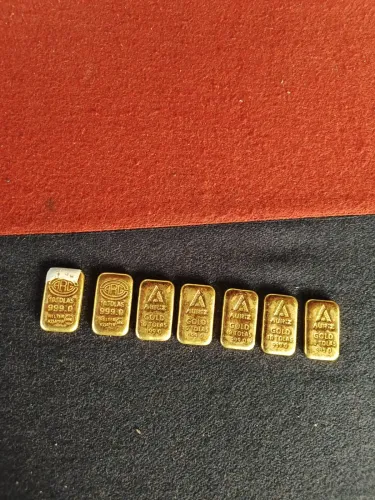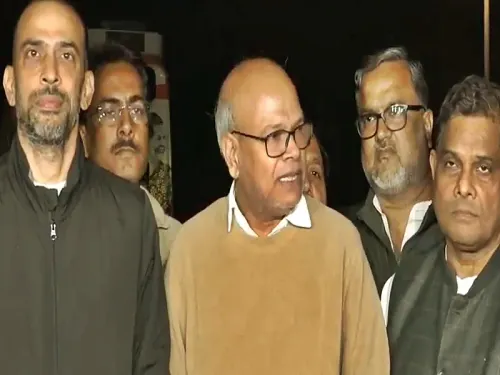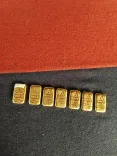Is New Moti Bagh the NDMC’s 5th Sustainable ‘Anupam’ Colony?

Synopsis
Key Takeaways
- 100% source segregation is achieved by all households.
- A circular waste management ecosystem processes and reuses waste.
- Community engagement is crucial for sustainability.
- Innovative initiatives such as RRR Centre and plastic waste vending machine promote recycling.
- Wet waste is converted to compost for maintaining green spaces.
New Delhi, October 11 (NationPress) - On Saturday, the Chairman of the New Delhi Municipal Council (NDMC), Keshav Chandra, announced that New Moti Bagh, a residential community now acknowledged as a model for sustainable and self-sufficient waste management, is officially the fifth Anupam Colony within its jurisdiction, according to an official statement.
New Moti Bagh has successfully achieved 100% source segregation, ensuring that each household is actively involved in responsible waste management, the statement noted.
This residential area embodies a completely integrated circular waste management system, in which all waste types are scientifically processed and reused on-site, as per the report.
During the ceremony, the NDMC Chairman praised the residents and the Residents Welfare Association (RWA) for their proactive engagement in realizing NDMC’s vision for a cleaner, greener, and self-sustaining New Delhi.
He expressed that with the launch of the New Moti Bagh Anupam Colony, NDMC is making strides in its mission to develop exemplary colonies that promote sustainable practices and contribute to the overarching goal of establishing NDMC as a model capital city.
This marks the fifth Anupam Colony within the NDMC area. Previously, NDMC recognized four other residential complexes - D1, D2, and Satya Sadan Officers’ Flats, Bharti Nagar, Aradhana (Burmah Shell Cooperative Housing Society Ltd), and Bapu Dham - all serving as exemplars of environmentally responsible living.
Chandra revealed that to enhance citizen engagement and promote responsible disposal habits, the colony features an RRR (Reduce, Reuse, Recycle) Centre, where residents can donate items like clothing, books, and household goods for repurposing.
Furthermore, a plastic waste collection and vending machine has been introduced to encourage the return of plastic bottles, fostering a culture of conscientious waste segregation and recycling at the source.
In recognition of the dedication and contributions of the staff and sanitation workers overseeing these facilities, sweets were distributed to those working at the on-site waste processing units, adding a celebratory element to the inauguration event.
Wet waste from households is processed at an Organic Waste Converter (OWC) to create compost, which is utilized for maintaining the colony’s parks and green spaces. Horticultural waste like dry leaves and trimmings is converted into eco-friendly briquettes, establishing a waste-to-wealth initiative, according to the statement.
Dry waste is sorted at an in-house Material Recovery Facility (MRF), facilitating effective segregation and recycling.
The community has also embraced additional sustainability measures such as rainwater harvesting systems and an on-site Sewage Treatment Plant (STP) for water recycling, solidifying New Moti Bagh as a genuine example of a ‘Sustainable Colony’, Chandra added.
Special acknowledgment was given to the Residents Welfare Association (RWA) of New Moti Bagh, particularly to Sudhanshu Pandey, Retd. IAS, Secretary, RWA, for their unwavering commitment and collaboration in transforming the colony into a standard for urban sustainability.









